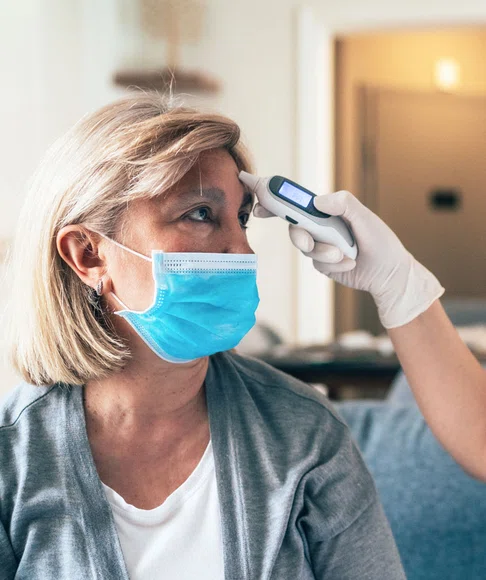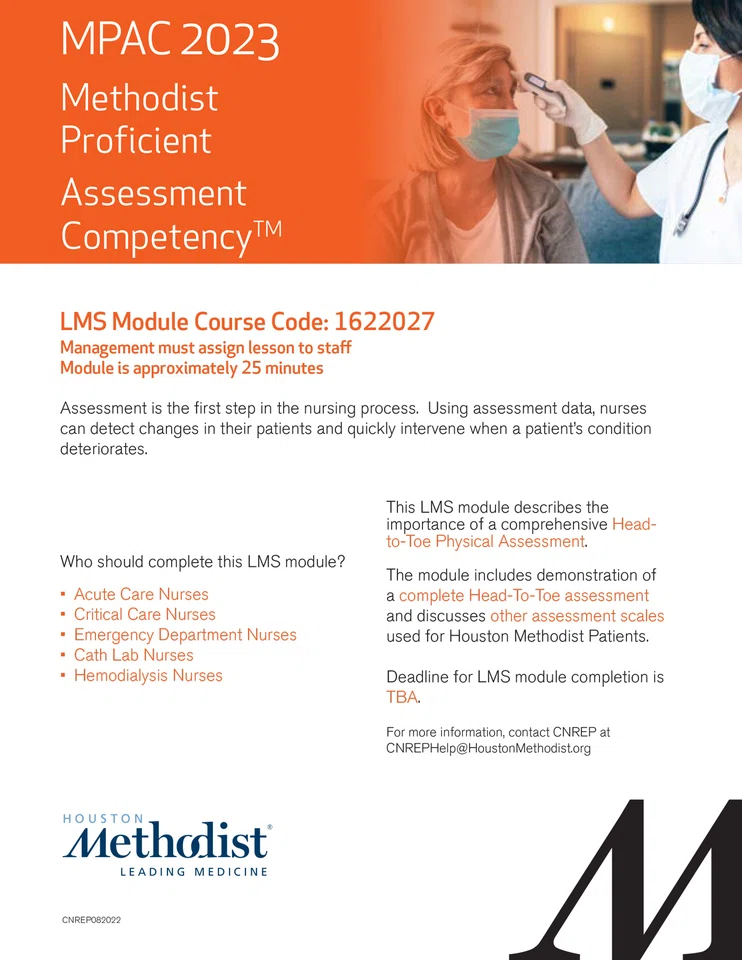Contact us at CNREPHelp@houstonmethodist.org
Questions or comments?
© 2022. Houston Methodist, Houston, TX. All rights reserved.


PROFESSIONAL DEVELOPMENT
Methodist Proficient Assessment CompetencyTM (MPAC) in 2023
By Jay Hooker, MSN, RN, CCNS, NE-BC
By Jay Hooker, MSN, RN, CCNS, NE-BC
4 MIN READ


Physical assessment is the first step in the nursing process. Developing keen physical assessment skills is key to building nursing expertise. When a skilled nurse performs a physical assessment, he or she can detect abnormal physiological findings. Early detection of these changes and responding to them promptly is important to maintaining the patients’ well-being and preventing clinical deterioration and, in some cases, cardiopulmonary arrest. Before a cardiopulmonary arrest, the astute nurse who has completed a physical assessment and is keenly aware of her or his patient condition may be able to:
- Apply pressure-reducing interventions to avoid a pressure injury.
- Administer blood pressure medicine to maintain the patient’s blood pressure.
- Intervene with a patient experiencing hypoglycemia.
- Alerting the care team to signs of a stroke or other neurological changes.
- Advance diet, mobility, or the pain management plan to maintain a patient’s positive trajectory of care.
- Increase oxygen delivery to maintain a patient’s oxygen saturation level.
- And many, many more nursing interventions which applied promptly can minimize harm.
The key to successfully implementing nursing interventions and calling on other disciplines to assist with further interventions is:
- completing a physical assessment
- comparing that assessment to baseline data
- recognizing slight changes in a patient’s condition
Did you know that vital sign changes are a rather late sign of clinical deterioration? Nurses are more likely to note a change in physical assessment data before a change in vital signs is evident. This allows for more rapid intervention.
Coming soon, nurses in the Acute and Critical Care units at HMH will be assigned a short LMS lesson. This lesson will review the importance of physical assessment, include a complete assessment performed on a standardized patient, and help nurses understand the importance of specific assessment tools built into Epic. By reviewing this module and instituting its lessons into practice, HMH nurses will be armed with keen assessment skills, ready to detect and intervene when a patient condition changes.
Get those stethoscopes and pen lights out! Use the nursing process and intervene to keep your patient safe!











